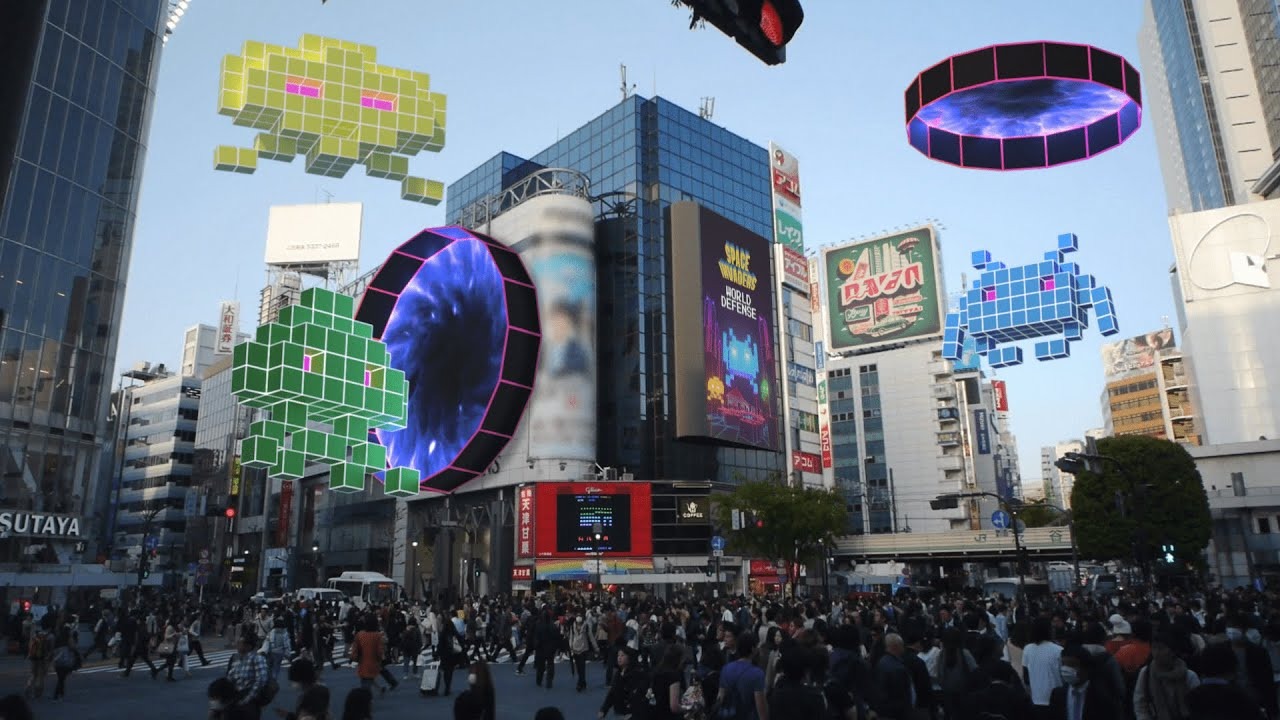Designed by Tomohiro Nishikado, the license space invaders celebrates its 45th anniversary this year. To mark the occasion, the development company Taito and Google have teamed up to offer a new episode in augmented reality.
The invasion starts now for some players.
A cult license in search of a new lease of life
Born in 1978, the franchise space invaders managed willy-nilly to cross the decades, even becoming one of the symbols of video games as a whole. Everyone recognizes the aliens, whether it’s because of the game or the little mosaics you sometimes come across on street corners. To keep its franchise alive, Taito has partnered with Google to give birth to Space Invaders: World Defense, an augmented reality game. If you don’t know what it is, consider Pokémon GO, among others.
You walk around in the real world, your camera captures your surroundings, and the app uses those images to insert 3D elements that you can interact with. In this case, it will be a question of destroying the hordes of aliens who land around us. To offer this new game, which will arrive everywhere by the end of the summer on devices with at least Android 11.0 or iOS 16.0, Taito has used a rather impressive technology from Google called ARCore.
Topographic data is collected by the Mountain View company and then used by the ARCore SDK. In doing so, the 3D models integrated by the game can interact with the environment and, for example, make buildings obstacles. The latter will even be able to see portals appear on their facades from which the aliens will emerge.
Rekindling interest in augmented reality
Space Invaders: World Defense will be launched on a market that is struggling to break through its glass ceiling. Many applications have been proposed by game publishers, and very few have stayed the course.
Niantic, which developed Pokemon GO by reusing its know-how obtained on Ingress, has experienced several setbacks and relies heavily on the license Pokemon to hold on. Peridot did not convince, and the games Harry Potter, transformers And NBA closed or simply never came out, forcing Niantic to lay off.
Other studios, like CD Projekt RED and its The Witcher: Monster Slayer, tried the blow without necessarily more success. Taito’s partnership with Google should make it possible to avoid pitfalls, but only time will tell if this bet was the right one for space invaders. In any case, the ambitions are there, with part of the game using the environments around us and another taking place in a digital world, which we will enter through special portals.
Source : Google

1